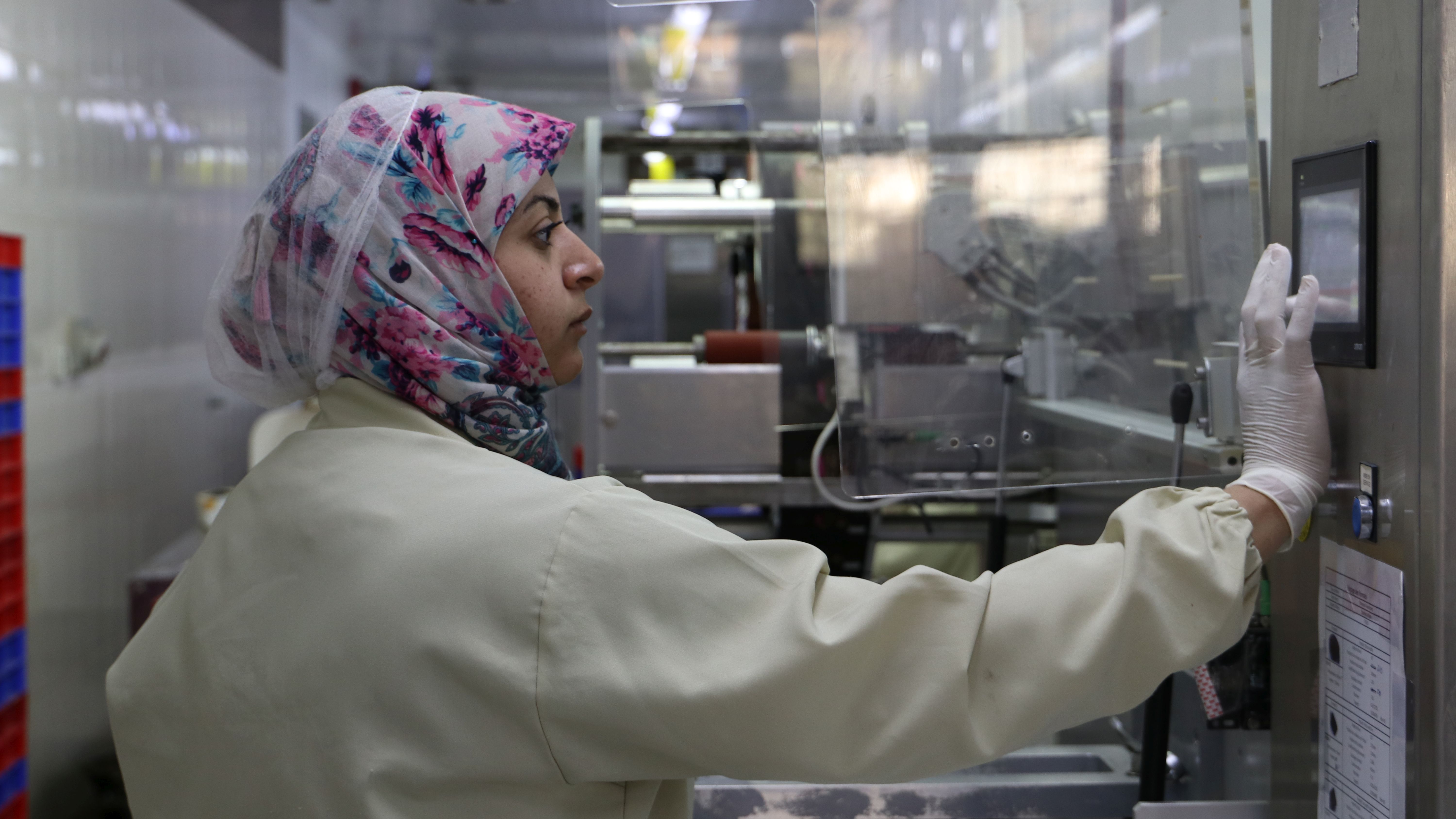Roberta de Palma: empowering women for sustainable production
07 March 2018 UNIDO

As the world continues to consume finite resources at an alarmingly rapid rate, Roberta de Palma, Chief Technical Advisor of the United Nations Industrial Development Organization’s (UNIDO) MEDTEST programme, believes that “women can be powerful agents of change” when it comes to drastically overhauling lifestyles and production and consumption patterns.
Sustainable production and consumption is a key theme of the European Union-funded SwitchMed programme, which encompasses UNIDO’s Transfer of Environmentally Sound Technology (TEST) methodology. TEST helps industries to switch to greener management and production systems, whilst at the same time helping companies to make significant financial savings.
With over 20 years’ experience of managing complex sustainability projects in industry in the fields of resource efficiency, corporate responsibility, eco-innovation and cleaner technology transfer, De Palma considers it a privilege to “have the opportunity to fulfil my dream to help developing countries with protecting and preserving their natural capital and creating prosperity through more sustainable and circular industrial practices.”
De Palma says, “The most exciting thing about the SwitchMed programme is seeing industrialists changing their mindset and operations after understanding the economic implication of inefficient use of resources in production; seeing service providers capitalizing on the experience gained and finding new clients to provide resource efficient and cleaner production (RECP) consultancy advice; and seeing policymakers incorporating RECP into their policy frameworks.”
This threefold impact ensures that the benefits of the SwitchMed programme are far-reaching, helping companies in the eight countries where the programme operates make significant advances with sustainable production (these countries are Algeria, Egypt, Israel, Jordan, Lebanon, Morocco, Palestine, and Tunisia).
Empowering and engaging women are programme priorities. There is a 50-50 gender balance in the team leaders appointed to be responsible for the implementation of the programme on the ground, and more than 70 women have also been trained and engaged as experts as part of the programme, a third of the total number of trainees over the four years of the on the job capacity building activities.
An engineer by background, De Palma, who specialized in environmental technology during her studies, reflects on the significance of this: “I have to say even I was surprised by the high number of female applicants, given the highly technical nature of the training on offer. It is clear that things are changing, although we are still some way from seeing true gender balance in fields like engineering.”
Since joining UNIDO in 2004, De Palma has worked to promote the adoption of sustainable manufacturing practices in hundreds of companies in the North African and Middle East region. She has led the conceptual design of an integrated approach and toolkit, combining key elements of material flow cost accounting, resource efficiency and management systems for continuous improvement of industry performance.
Whilst a number of framework conditions can affect the pace of uptake of resource efficient practices in the various countries, from access to finance to the availability and costs of energy, the business case for resource efficiency has been successfully demonstrated in all eight countries.
“As key resource managers, women can really make a difference in the way we transform production and consumption patterns,” says De Palma. Given that at the global level just 6% of total materials used are recycled, engaging and empowering women could well be the key to ensuring that more sustainable production systems and circular business models are adopted to reduce depletion of natural capital for the benefit of this generation and those to come.
Related Links
Story: Monica Maduekwe: breaking the vicious cycle of energy poverty
Story: Successful businesswoman inspires entrepreneurs in Tanzania